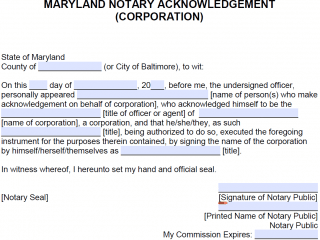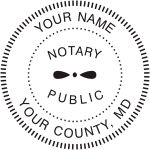

And this, in turn, leads to more delays that take more time for the beneficiaries to get estate assets of the will. It can get difficult to validate and verify the will if the witnesses have passed away or migrated to another country. For instance, when someone dies, the will, first and foremost, should be verified, and witnesses have to testify in a court that they signed the document and witnessed the valid will holder’s signature. Most states require the visible signature of the testator and two individual signatures from disinterested parties. And most importantly, the notarized and witnessed will have to meet state-specific laws. But without notarization, the court won’t consider your will a binding legal document. Does a will have to be notarized?ĭrafting, finalizing, and notarizing a will is not the end of the road. When uncertainty creeps in – the testator usually reaches out to an experienced estate attorney to get legal advice and ensure the self-proving will work out as per the will holder’s last wishes. In these cases, the will can still work as a sufficient legal instrument with two witnesses and a validated signature. In fact, some states don’t allow the will holder to attach an affidavit. On the other hand, some states don’t require the testator to notarize an affidavit. And that’s because the testator understands that the attached affidavit is sufficient proof. It also cuts out the need to find and propel witnesses to appear in court. The idea is to ensure the probate process goes faster and smoothly and works in favor of the estate executor. Remember that witnesses testify in a court “after” the death of the testator. Next, you need to negate the will’s requirements which involve witnesses testifying in a court of law that they witnessed the testator sign the will. It works as legal proof that the will is legal and valid. Most states have a probate court that accepts wills attached to an affidavit. It means ensuring the document is signed in the presence of a certified notary public to get it validated.

When it comes to self proving affidavit, an instrument like a will paired with an affidavit requires notarization. When it comes to a self-proving will, you need two legit witnesses without a conviction record to sign your will. Remember, an affidavit works as a legal piece of document and includes a written statement with a sworn oath. Let’s take a look at the basics of notarizing a will, the process of notarizing a will, the importance of notarizing a will, and where and how you can get your will notarized and witnessed: What is a self-proving will?Ī self-proving refers to a will with the attached affidavit. In fact, a notarized and witnessed will ensures no one contests the document after you pass away. You don’t have to dive into a complicated process – it just takes a notary signature to ensure the legal status of your will. Once you draft your will, ensure it is notarized and witnessed. It is crucial to divide your properties and other assets into loved ones or specific beneficiaries to avoid confusion and conflict later on. Of course, making and executing a will is a major life decision. If you want to protect your legacy and ensure it lasts, you will have to get a will.


 0 kommentar(er)
0 kommentar(er)
